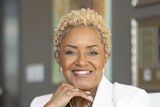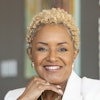Class, Race Factor into Counselor’s College Recommendations
High-school guidance counselors advise middle-class Black students without a strong academic record to apply to community colleges more often than they do middle-class White students with the same academic record, concludes a new study. However, when it came to students from upper-income families with low performances, White students were more likely to be recommended to community colleges than Black students.
The study, “High School Guidance Counselors: Facilitators or
Pre-Emptors of Social Stratification in Education,” found that class was a bigger factor than race when it came to counseling
high-school students.
“Counselors seem sensitive to class and race. They both have impacts separately,” says Dr. Frank Linnehan, associate dean for undergraduate programs at Drexel University’s Lebow College of Business and the study’s co-author. “But class is positively related when it came to counselor recommendations to four-year colleges and negatively related when it came to community colleges.”
But researchers were surprised that race made a difference, even after taking social class into account.
“Race only became a factor when it came to four-year schools as counselors recommended Black students to attend these institutions more strongly than White students,” says Linnehan. “It was not a racist view but favored supporting the students.”
Counselors were also more likely to recommend students with higher family incomes to four-year colleges regardless of the students’ gender, academic performance and race. The income factor was not surprising, Linnehan says, because counselors may assume students from high-income families can afford a four-year college more so than middle-income families.
The study, which was sponsored by the National Commission for Cooperative Education, was based on a sample of 1,700 responses from a survey sent to 20,000 high-school counselors throughout
the nation.
“It’s good for the profession to be aware of [the study] … there might be a possible unconscious bias,” says Brad McGowen, who has been a high-school counselor for more than 20 years in Newton, Mass. He says the predominantly White Boston suburb has become more diverse, with recent immigrants from Asia and South America.
Dr. Carolyn Stone, a counselor educator at the University of North Florida and a member of the American School Counselor Association, says the organization is working hard to improve equity and access issues.
“The old image of counselor as gatekeeper is not viable,” she says. “It’s about supporting every student, not sifting and sorting … It’s about raising aspirations and showing them the opportunities. It’s not just about work, military, community colleges, but also four-year colleges for their economic future,” she says.
— By Shilpa Banerji
© Copyright 2005 by DiverseEducation.com


















